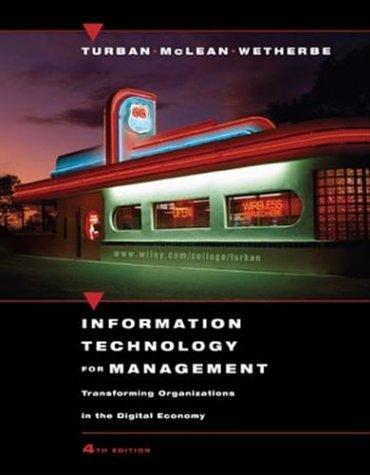8. Does an end-user have the duty to respect the intellectual property vested in a productby not...
Question:
8. Does an end-user have the duty to respect the intellectual property vested in a product—by not decompiling and modifying it, even if the purpose is to improve the product?
Ethics is a branch of philosophy that deals with the analysis of decisions and actions with respect to their appropriateness in a given social context. Historical antecedents include the Bible’s Ten Commandments, as well as elements of the philosophy of Confucius and Aristotle. As a discipline of study and practice, ethics applies to many different issues in information technology and information systems—and correspondingly, to many different people in industry and academia (managers, teachers, and students), in both the private and public sectors.
Ethics has been defined as involving the systematic application of moral rules, standards, and principles to concrete problems (Lewis, 1985). Some people believe that an ethical dilemma emerges whenever a decision or an action has the potential to impair or enhance the well-being of an individual or a group of people. Such dilemmas occur frequently, with many conflicts of interest present in the information society.
A variety of sets of ethical guidelines have been devised. But we must emphasize: What is unethical may not necessarily be illegal, and what is legal may not necessarily be ethical. Furthermore, whether an action or decision is considered ethical will depend on many contributing factors, including those of the social and cultural environment in which the decision is made and the action is implemented.
Step by Step Answer:

Information Technology For Management Transforming Organizations In The Digital Economy
ISBN: 9780471229674
4th Edition
Authors: Efraim Turban Ephraim McLean James Wetherbe






